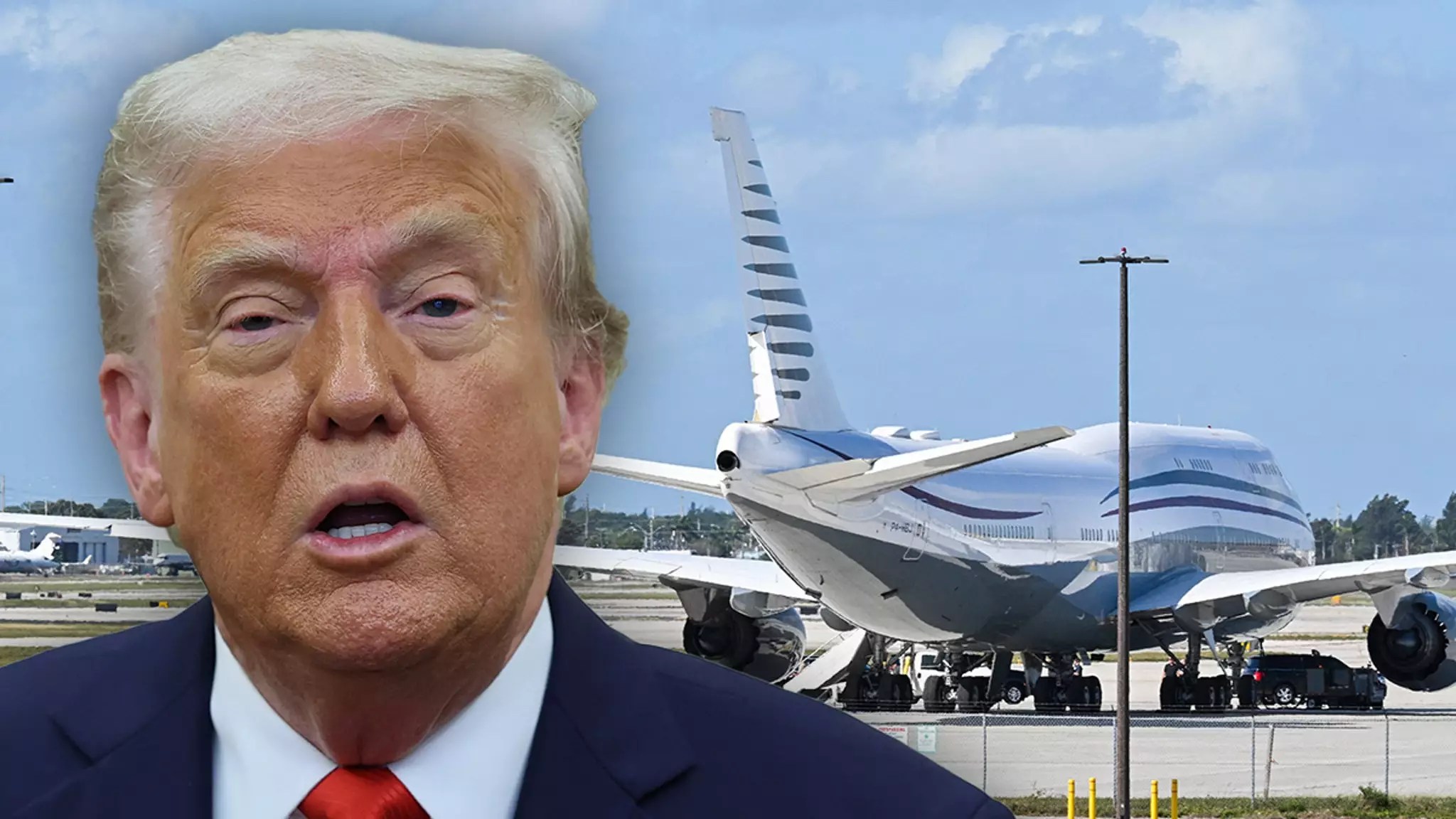In a world where the political landscape is increasingly marred by controversy and division, Donald Trump’s latest endeavor stands out as a sensational tale of luxury and legal ambiguity. The revelation that he may receive a $400 million Boeing 747-8 from Qatar’s royal family has sent shockwaves through the halls of political discourse. This extravagant gesture poses not just questions about ethics, but also highlights the precarious line between luxury and legality that politicians often walk.
Gifts or Transactions? The Fine Line
At the heart of this controversy lies the murky waters of legal and ethical standards regarding gifts from foreign governments. Under U.S. law, accepting such extravagant gifts can lead to severe ramifications, yet Trump’s camp argues that the aircraft is not a personal gift, but rather a state asset intended for national use. The implications of this claim are significant; if a foreign entity can provide monumental gifts free of charge, it raises burning questions about influence, loyalty, and the constitutional integrity of the U.S. government.
While the Trump administration insists that this gift will not further entrench foreign influence within the federal apparatus, skeptics raise their eyebrows. Can a transaction presented as a noble act of generosity not inherently carry strings attached? It is cynical, perhaps, to assume malintent, but in the realm of politics, an air of skepticism is often warranted.
The Appearance of Transparency
Navigating public perception is an art form mastered by political figures. Trump’s proclamation on Truth Social attempts to frame the acceptance of this aircraft as a testament to transparency and efficiency: a necessary upgrade to the aging fleet of Air Force One. However, rather than the embodiment of progress, it appears to be a veil draped over deeper issues concerning ethical governance. The delicate balance of public trust and perception is tested here, with Trump’s opponents labeling him as opportunistic rather than forthright.
Furthermore, the complex web of ownership that suggests the aircraft will ultimately fall into the hands of Trump’s presidential library foundation raises additional eyebrows. This notion of transitioning ownership serves more as an effective maneuver to dodge scrutiny than a model of responsible governance.
A Chain of Connections
Adding another layer to this unfolding drama is the association with Eric Trump’s recent golf club deal in Qatar. Worth a staggering $5.5 billion, the deal suggests a network of financial interests extending beyond mere political maneuvering. Does accepting a luxury aircraft establish a tangled connection between personal interests and state matters? The narrative unfolds like a plot straight out of a political thriller, where family ties and international dealings intertwine with national symbols of power.
It is imperative to scrutinize not just the act of accepting foreign gifts, but the underlying intentions that shape such transactions. Does this set a precedent for future administrations? Will this create a culture in which political influence is bartered through opulence, staking the nation’s principles in the pursuit of glamour?
This episode is emblematic of a wider phenomenon where the barriers separating personal gain from public service are continually tested and, more often than not, eroded. The ramifications of such decisions extend far beyond Trump’s tenure; they resonate through the corridors of power, echoing in the actions and beliefs of those who will come after him.







Leave a Reply